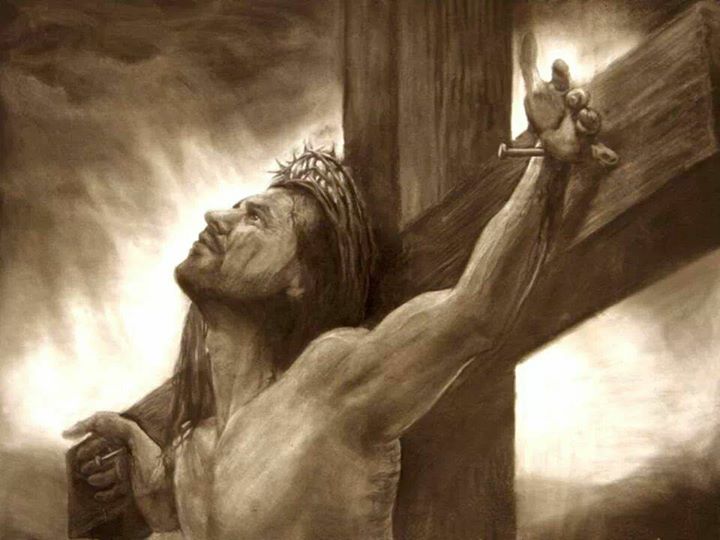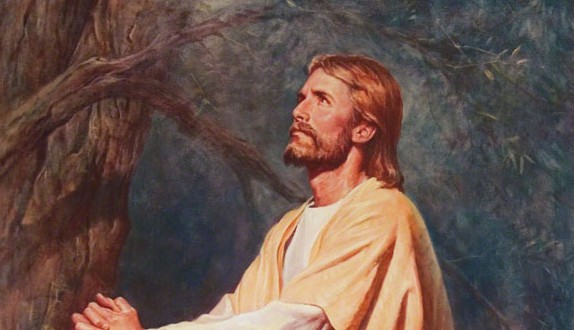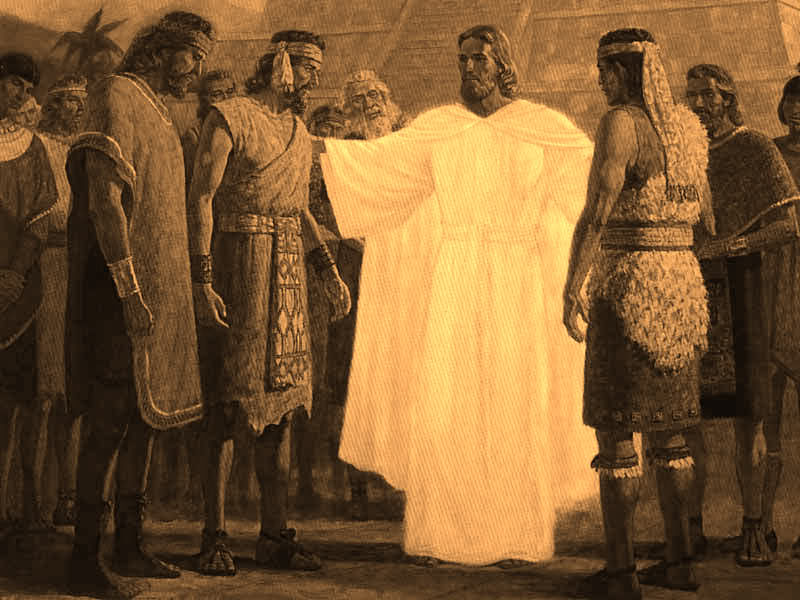Question
Gramps,
What is your opinion of why Christ’s atonement had to be so gruesome? I think of Abraham’s showing his obedience to God asking him to sacrifice Isaac and God not requiring him to complete the sacrifice.
Richard
Answer
Dear Richard,
I’m not entirely sure I can say why the Atonement was worked the way it was. When I think of the suffering the Savior underwent, I find overlapping layers of theme stacked one upon the other. The language of symbols (which thematic material relies heavily upon) makes the ineffible relatable, so that if I cannot properly express in words what is happening, I can still understand the impact.
What am I bid?
Have you ever watched Antique Roadshow? People bring old stuff that they have lying around their house, and experts come in and tell them about it. Before concluding, the experts provide an estimate of how much the item could fetch at auction. There’s a reason their appraisal is called an estimate – the expert can’t know the actual value of the item until someone buys it with full knowledge of what it is. It needs a price, and it needs a buyer.
Some of our dearest treasures in this world have come at a remarkably steep price. We are well aware of the price in human lives to establish our nation and to keep it. Our precious scriptures in these latter days “cost the best blood of the nineteenth century”. These blessings that we hold so close have been paid for and granted to us. Our hearts fill with gratitude as we ponder the tremendous cost.
What then of your soul? “Ye are bought with a price“, Paul reminds us not once but twice. We are no longer slaves, but freed, because we have been purchased and made free (“bought back” is a fitting definition for “redeemed”). And naturally we feel obligated to give our whole selves to our Redeemer. “Ye are not your own[,] for ye are bought with a price.” So there is a price tag on you, but for how much? Are you something of value? We are admonished by revelation to “remember the worth of souls is great in the sight of God.” Of course I’ll remember – Paul won’t let me forget! What I’m looking for is a number on the pricetag. “For behold, the Lord your Redeemer [there’s that word again] suffered death in the flesh; wherefore he suffered the pain of all men, that all men might repent and come unto him.” If the Book of Mormon cost the best blood of the nineteenth century, you cost the best blood of all time.
Paid in blood
This blood motif is nothing new. It is common throughout the Mosaic code, intending to conjure up just how valuable life is. Eating is a necessity of life, and although an animal must surely lose its life for the sake of another’s hunger, ancient Israel would not eat the blood “for the life of all flesh is the blood thereof.” The two concepts of life and blood have been interchangeable since the days of Noah. And modern scripture continues to reaffirm this usage, as Christ our Advocate pleads our case with a special appeal on account of His “blood … which was shed” in the course of “sufferings and death”.
In today’s world, so many of us are separated from our food sources. We don’t look at cows and see the different cuts outlined on body. We don’t kill the animals ourselves. Most of the time, we don’t even butcher them. In Old Testament times it was very different. The holiest place of all, the temple, was terribly messy by today’s standards. Animals were brought in on a daily basis, killed, drained, and cooked on the altar. Blood was sprinkled on the corners of the altar. The priests burned incense (besides being a symbol for prayer) to mask the smell of death. As with all things related to the priesthood, all this was done in order, but that doesn’t change the bloody nature of it. And so for the discerning Jew who came to Jerusalem for that holy Passover who saw upon the hill a Man stripped of His clothes like a sheared sheep, bleeding profusely from the death-work, sanctified for this very moment (a la John 17); he sees that this is the reality and his meal of lamb is but a shadow.
The shame and glory of the cross
Of all the ways to die, why the cross (Stephen was stoned despite any legal hangups)? The Jews at the time of Christ thought that by hanging Christ on the cross they publicly showed His followers that He was damned. Peter and Paul both recognize this shaming technique and acknowledge that the leadership “slew and hanged on a tree” their Master. Paul spells out for the modern reader why this is an issue: “Christ … was made a curse for us: for it is written, Cursed is every one that hangeth on a tree”. The verse Paul is quoting uses the word “accursed” instead, but the intent is that such persons have been cut off. A remarkable example of this is Judas, who felt condemned and hung himself on a tree. Modern revelation speaks of Christ “descend[ing] below all things“, but Paul finds triumph in the shame. In “being made a curse for us”, “Christ hath redeemed (there’s that word yet again) us from the curse of the law”.
On the cross, Christ served as a proxy showing us the price of discipleship. “If thine right eye offend thee,” He taught, “pluck it out and cast it from thee; … and if thy right hand offend thee, cut it off and cast it from thee”. If you want to talk gruesome, Richard, this is gruesome indeed. We cannot be made clean while clinging to offending practices. We cannot serve our sinful habits and serve God. And so Paul turns to the example of Jesus to demonstrate what we need to do: “our old [sinful] man is crucified with him, that the body of sin might be destroyed”. Jesus lived a sinless life. He could not show us how to repent except through allegory. And what a powerful image it is! Only by killing the old year can there be room for the birth of the new. And as we are made new creations in Christ, He takes those sins “which [were] contrary to us, and [takes] it out of the way, nailing it to the cross“. I don’t know how many habits you’ve tried to break yourself of, but I find this harsh and cruel image to be a striking parallel of the process.
And since I’ve already mentioned the Atonement as a catalyst for a new creation, allow me to share with you that birth is a terribly messy process. Creating order from chaos is messy enough, but creating a new life is sobering. Jesus sweat great gobs of blood for us to create eternal lives. He knelt at the auction block of justice, “tremble[d] because of pain, … [bled] at every pore, … suffer[ed] both body and spirit – and would that [He] might not drink the bitter cup and shrink–“, under this tremendous weight He persevered and bid for your soul and won at a tremendous price. Because you’re worth it.
Gramps







